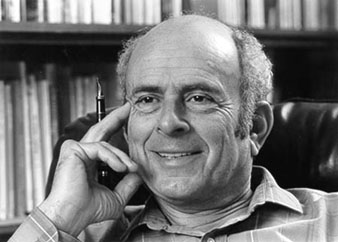LITR 4333: American
Immigrant Literature

Student Poetry Presentation 2006
Louis Simpson, "A Story About Chicken Soup" UA 245
Reader: Nathan Brown
4 April 2006

Louis Simpson
Biography of Louis Simpson:
Louis Simpson was born in Jamaica on March 27, 1923.
His father was a lawyer of Scottish descent, while his mother was of Russian
descent. At the age of 17, Louis Simpson emigrated to the United States
and began attending Columbia University. During World War II, from
1943-1945, he served as a member of the 101st Airborne Division and fought in
the Netherlands, Belgium, and Germany. After the end of the war, he
attended the University of Paris. His first book, titled The
Arrivistes, was written in 1949. He received a Ph.D. from Columbia
University and taught there. He also taught at the University of California,
Berkeley, and the State University of New York at Stonybrook. He
received the Guggenheim Fellowship Award in 1962 and the Prix de Rome.
He also received the Pulitzer Prize in 1964 for his collection of poems
At the End of the Open Road. He is also a literary
critic and has published 17 books of poetry. His memoir, The King of
My Father's Wreck, was published in 1995. Currently, he lives on
Long Island, New York, near Stonybrook.
Literary Objectives:
Objective 2. To
chart variations and stages of the immigrant narrative
2a. Basic Stages of the Immigrant Narrative
Stage 3: Shock, resistance, exploitation and discrimination
Objective 3. To
compare and contrast the immigrant narrative with the minority narrative--or
the American Dream versus the American Nightmare
- Similarities between immigrants and minorities
Immigrants may
experience problems of "minority" cultures in the first generation
or generations. Immigrants may suffer discrimination and marginalization
by the dominant culture on account of racial and cultural differences as long
as those differences are visible or audible. With a few exceptions, the
only immigrants who are treated as minorities are immigrants who are not yet
assimilated.
Questions:
1. What is the meaning of the "chicken
soup" in the poem?
2. What is the purpose of the line "The snow
falling down the necks of lovers"?
3. Who exactly are the "mechanical brothers"
that Simpson mentions?
Bibliography:
|
|
|
|


